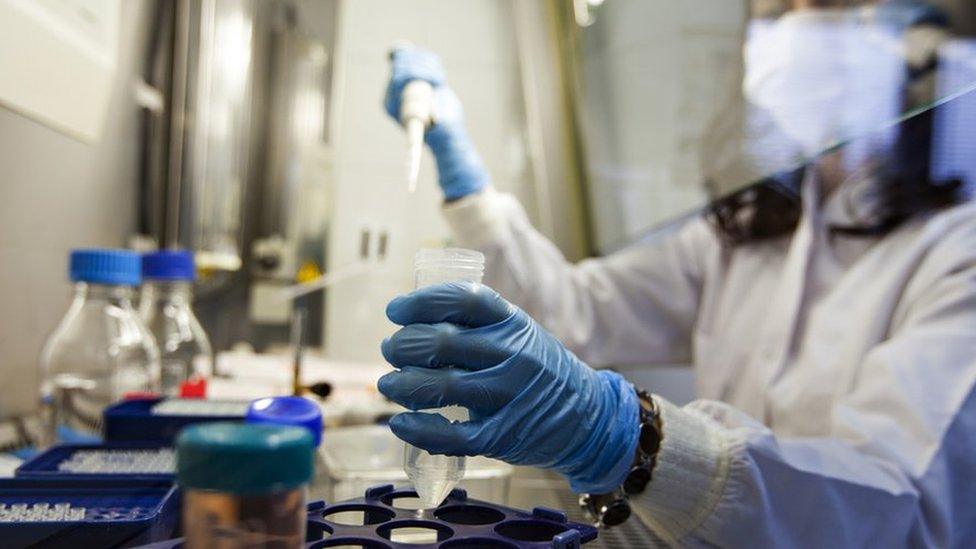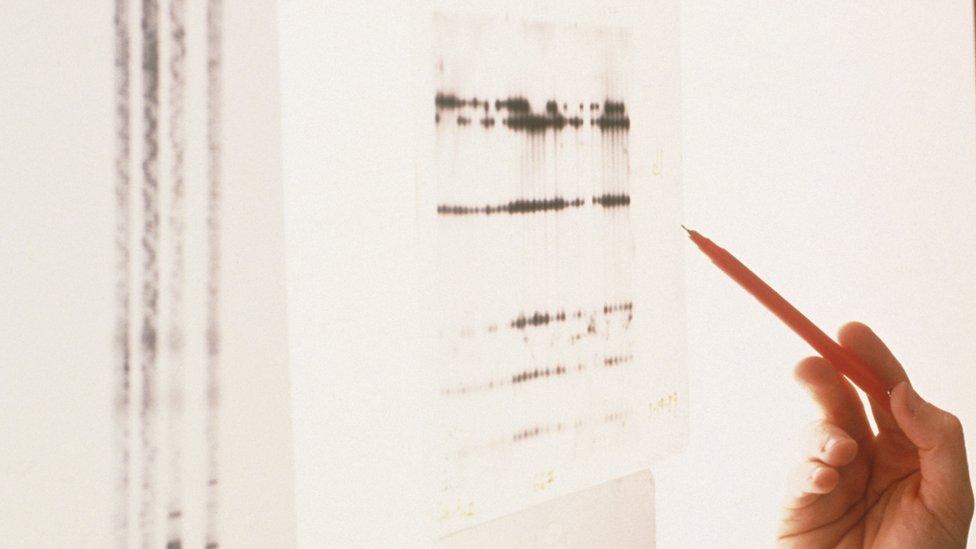Visa clampdown 'hits cancer patients'
- Published

Cancer patients are being put at risk by immigration rules, say specialist doctors.
NHS hospital trusts are struggling to recruit genetic counsellors, who identify people at risk of hereditary cancer and other serious conditions.
Some hospitals rely on foreign workers, who now find it difficult to get visas as immigration rules have tightened, external.
The Home Office said priority was given to people working in occupations with shortages.
Health bosses criticise visa rules for doctors
NHS 'dangerously' short of 100,000 staff
How knowing your genetic code could lengthen your life
Home Office visa delays 'inhumane'
Steph Burcher, a genetic counsellor from New Zealand, has been working at an NHS trust in London for the past two years.
Having arrived on a young person's working visa which was about to run out, she applied for a sponsored work visa in order to stay.
Last month, she was refused the document and has now moved back to New Zealand, with the option to reapply each month.
She said: "It was really disappointing to get confirmation. I really enjoy my job and would like to continue doing it but unfortunately I can't without a visa.
"I'm aware of a lot of NHS workers who are struggling to get their visas at the moment. There's a lot of uncertainty.
"It's really difficult for my employers. At the moment they've said they will hold the job open for me but I can't expect them to do that indefinitely.
"It has a huge impact on my team members - we're already two members of the team down, so they're already operating at capacity and really struggling with the workload."
Ms Burcher added: "It's having a huge impact on our patients as well. There are already huge waitlists for them and it's only going to get worse."
Foreign workers who are offered a job in the UK have to apply for a tier 2 visa, external. These are granted up to a monthly limit, with priority given to applicants in a "shortage occupation" like nursing and those earning high salaries.
Cancer specialists are now calling for genetic counselling to be placed on the shortage occupation list, to increase the chances of rota gaps being filled.
'Absolutely devastating'
Dr Katie Snape, a consultant cancer geneticist, told the BBC some patients were now waiting months for outpatient appointments, outside the NHS's 18-week target to be seen.
She said: "There is a nationwide shortage of genetic counsellors at the moment. We have advertised posts and been unable to appoint either UK or EU-trained genetic counsellors into those positions.

Genetic analysis can give an early warning of who is at risk of cancer
"The problem has now been compounded because we have highly skilled professionals from other countries that are unable to get work visas, effectively because they don't earn enough money to get the points needed for the visa.
Dr Snape said there was no doubt waits were getting longer. "It varies depending on hospital trust and where you are in the UK. People can wait now six, nine, 12 months, and we know of even longer in some cases.
"It's absolutely devastating when someone gets a diagnosis of an advanced and incurable cancer. We absolutely know that assessing genetic risk can enable us to early-detect and prevent and cure cancers.
"So the fact that we are unable to provide safe genetic cancer services in this country I think is awful."
The impact of these delays could have a profound effect on patients, according to Prof Jayant Vaidya, a leading breast cancer surgeon.
He said: "This is important for cancer, because in a small proportion of breast cancers, women can be identified as being predisposed to developing cancer.
"If they can be given preventative treatment, they have a much better outcome than if they develop the cancer later on, and that's why it's so important to identify such women and give treatment, in which case they can be cured."
A spokesperson for the Home Office said: "The shortage occupation list is set following advice from the independent Migration Advisory Committee and kept under regular review.
"It is important that our immigration system works in the national interest, ensuring that employers look first to the UK resident labour market before recruiting from overseas.
"When demand exceeds the monthly available allocation of tier 2 (general) places, priority is given to applicants filling a shortage or PhD-level occupations."
Health and Social Care Secretary Jeremy Hunt told the Health Service Journal he supported the idea of a dedicated visa category for health and social care workers - which would enable more to come into the UK.
He said: "I think it is a really interesting idea. And it's something I should probably raise with the new home secretary."